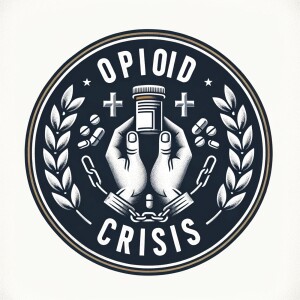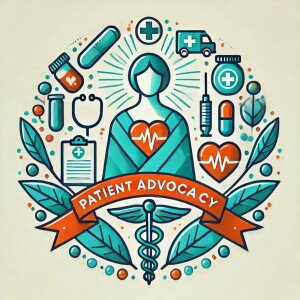RealPharma: Conversations with Pharma Pathfinders
For biopharma pros seeking insightful discussions and a deeper understanding of the pharma world, join Dr. Na-Ri Oh and Ian Wendt as they talk with industry leaders and luminaries to delve into biotechnology, pharmaceuticals, and healthcare. RealPharma podcast aims to challenge your viewpoints, deepen your understanding of the pharma world beyond the headlines, and explore emerging trends in medical innovation.
Episodes

Monday Dec 16, 2024
Monday Dec 16, 2024
In this episode of the Real Pharma Podcast, hosts Ian Wendt and Dr. Na-Ri Oh and guest Jason Scharf delve into the evolving landscape of TechBio, exploring its definition, the rise of bio innovation, and the challenges and opportunities it presents.They discuss the shift from traditional drug development methods to innovative approaches driven by technology, the importance of adapting business models in the pharmaceutical industry, and the need for a balanced regulatory framework that fosters innovation while ensuring safety.Jason shares insights on the future of drug development, the role of big pharma, and the necessity for a collaborative ecosystem to drive progress in healthcare. In this conversation, Jason Scharf discusses the evolving landscape of the TechBio sector, particularly in Austin, Texas. He highlights the intersection of science and policy, the growth of Austin as a tech bio hub, and the dynamics of the local ecosystem. Scharf emphasizes the importance of innovation, investment philosophy, and the future trends shaping the industry.He also shares personal insights on entrepreneurship and the significance of understanding one's skills and passions in driving change.Resources:Jason Scharf on LinkedInJason Scharf on X (Twitter)Austin Next Podcast

Monday Dec 02, 2024
Radiopharmaceuticals: The Future of Precision Medicine with Roger Estafanos
Monday Dec 02, 2024
Monday Dec 02, 2024
In this conversation, Roger Estafanos discusses the evolving field of radiopharmaceuticals, highlighting their transformative impact on cancer treatment and patient care.He explains the targeted nature of these therapies, the importance of personalized medicine, and the challenges faced in regulatory processes and patient safety. The discussion also covers the role of different radioisotopes, the complexities of supply chain management, and the need for improved access to these innovative treatments.The conversation delves into the complexities and advancements in the field of radiopharmaceuticals, focusing on logistics, future opportunities, investment landscapes, commercialization challenges, talent acquisition, and technological innovations. The speakers emphasize the importance of optimizing supply chains, the potential for expanding applications beyond oncology, and the role of AI in enhancing imaging processes.They also discuss the need for education among healthcare providers and patients, as well as the personal motivations driving their work in this evolving field.Resources:Roger Estafanos on LinkedIn**Society of Nuclear Medicine and Molecular Imaging (SNMMI)** Comprehensive resource on the use of radiopharmaceuticals in imaging and therapy: [https://www.snmmi.org]**Theragnostics Explained** An introduction to theragnostic approaches combining diagnostics and therapy: [https://www.cancer.gov/about-cancer/treatment/types/theragnostic]**U.S. Nuclear Regulatory Commission (NRC)** Guidelines for handling, licensing, and safe administration of radiopharmaceuticals: [https://www.nrc.gov]**FDA Guidance on Radiopharmaceuticals** Regulatory pathways and guidelines for the development of radiopharmaceuticals: [https://www.fda.gov]**Patient Advocacy in Radiopharmaceuticals** Information for patients and caregivers about radiopharmaceutical therapies: [https://www.patientadvocate.org]**Radiopharmaceutical Treatment Education** Tips and safety guidelines for patients undergoing radiopharmaceutical treatments: [https://www.cancer.net]**AI in Radiopharmaceutical Imaging** How AI is transforming diagnostic imaging and patient care: [https://www.auntminnie.com]**Global Radiopharmaceutical Market Reports** Market trends, forecasts, and analysis: [https://www.globenewswire.com]

Monday Nov 18, 2024
Decoding Digital Marketing: Insights from Aaron Burnett
Monday Nov 18, 2024
Monday Nov 18, 2024
In this conversation, Aaron Burnett, from Wheelhouse DMG, discusses the rapid evolution of digital marketing in the healthcare sector, emphasizing the importance of data strategy and compliance with regulations like HIPAA.He highlights the shift from third-party data reliance to first-party data utilization, which enhances marketing effectiveness and patient engagement.The discussion also covers the need for collaboration among marketing, compliance, and IT teams to develop effective data strategies and the role of customer data platforms in personalizing healthcare marketing efforts.In this conversation, the speakers delve into the complexities of data privacy, patient consent, and the ethical implications of using AI in healthcare. They discuss the transformative role of AI and machine learning in digital health, emphasizing the importance of first-party data and the need for compelling content.The conversation also touches on marketing strategies in a digital landscape, the evolution of media mix modeling, and the tools that enhance digital marketing efforts. Finally, the discussion concludes with an inspiring anecdote about unconventional thinking and the pursuit of personal fulfillment.Resources:Aaron Burnett on LinkedInWheelhouse DMGDigital Marketing 2024: The Complete Guide For Beginners

Monday Nov 04, 2024
AI Recap - Andree Bates Episode Review
Monday Nov 04, 2024
Monday Nov 04, 2024
In this latest episode of RealPharma, we’re diving back into the fascinating world of AI in pharma, breaking down all the insights from our conversation with the brilliant Andree Bates! If you missed it or want to catch the highlights, this episode serves up a concise, punchy summary covering everything from predictive analytics to patient outcomes and beyond.But there's a twist.Our hosts, this time, bring a unique, fresh perspective to the conversation—you might notice something different about how they tackle the topic. Stick around until the end, and you’ll find out what makes this episode truly special.Curious? You won’t want to miss this one. Tune in, share your thoughts, and see if you can guess what’s up! ResourcesAndree Bates on LinkedInEularisAI in biopharma research: A time to focus and scaleAI in Biopharma: Use Cases and ConsiderationsArtificial intelligence and its expanding role across the biopharma landscape

Monday Oct 21, 2024
Mastering Omnichannel: Insights with Philip Vyt
Monday Oct 21, 2024
Monday Oct 21, 2024
In this episode, Dr. Na-Ri Oh and Ian Wendt sit down with Philip Vyt, a renowned expert in omnichannel strategy and founder of Shyft, a consultancy specializing in omnichannel approaches for biopharma.They delve into the key concepts behind omnichannel and its distinction from multichannel, emphasizing the centrality of healthcare professionals (HCPs) in engagement strategies. Philip breaks down the importance of personalized content delivery and the role of interconnected channels in creating a 360-degree view of HCP interactions. He also shares practical advice for biopharma companies—both large and small—on building effective omnichannel campaigns, starting with "minimal viable campaigns" to learn by doing.The conversation explores the challenges companies face, such as managing content supply chains and the integration of technology, while highlighting the significant investments needed in marketing technology (MarTech) for a truly effective omnichannel approach. Philip also discusses the differences between the U.S. and European markets in terms of data privacy and consent, as well as the evolving role of AI and automation in real-time engagement with HCPs. Throughout, Philip provides actionable insights on how companies can avoid common pitfalls, emphasizing a focus on execution and the importance of aligning marketing with commercial excellence.Listeners will gain a deeper understanding of what it takes to implement a successful omnichannel strategy and why it’s a journey that requires commitment, adaptation, and collaboration across teams.Resources:Philip Vyt on LinkedIn

Monday Oct 07, 2024
Staying Ahead In Your Pharma Career with Kristiaan Rawlings
Monday Oct 07, 2024
Monday Oct 07, 2024
In this episode, Dr. Na-Ri and Ian Wendt welcome back Kristiaan Rawlings, from EPM Scientific to discuss the latest trends in pharma and biotech hiring.They explore the key drivers of hiring, the impact of AI and advanced analytics, and the evolving expectations of candidates. Kristiaan emphasizes the importance of change agents in the industry and shares insights on the optimistic outlook for small biotechs and oncology. The conversation also touches on strategies for candidates to navigate career transitions and for companies to attract top talent in a competitive market.Resources:Kristiaan Rawlings on LinkedInEPM ScientificBioSpace 2024 Employment OutlookBioSpace Complete Guide to the Biopharma Job SearchBioSpace 2024 Job Search Toolkit

Monday Sep 23, 2024
Opioid Epidemic: Michael Barnes on the Fight to End the Crisis
Monday Sep 23, 2024
Monday Sep 23, 2024
In this episode, Ian Wendt and Dr. Na-Ri Oh interview Michael C. Barnes, Chairman of the Center for US Policy, about the US opioid crisis.They discuss the evolution of US policy on opioids, the impact of the crisis on different communities, the role of legislation and harm reduction, the accountability of the pharmaceutical industry, barriers to accessing treatment, and the importance of advocacy in addressing stigma.The conversation explores various themes related to the substance use disorder crisis, including the lack of parity in insurance plans, the role of prescribers, the need for treatment and support, the potential for decriminalization, the economic impact of substance use disorders, and the US-centric nature of the problem. The guests discuss the importance of addressing substance use disorder as a health condition and providing therapeutic responses and harm reduction services. They also highlight the need for policies that focus on prevention, access to treatment, and economic opportunities for individuals in recovery. The conversation emphasizes the complexity of the issue and the need for comprehensive solutions.Resources:Michael Barnes on LinkedInCenter for US PolicyNOPE Task ForceRecovery Friendly Workplace InstitutePain News Network

Monday Sep 09, 2024
Medical Affairs Reimagined: Danny McBryan on Shaping Pharma’s Future
Monday Sep 09, 2024
Monday Sep 09, 2024
Danny McBryan, an executive leader in the pharmaceutical industry, discusses the evolving role of medical affairs in healthcare.He highlights the importance of medical affairs in conveying the science of pharmaceutical companies and translating complex data into a meaningful narrative for healthcare providers, payers, patients, and policymakers.McBryan emphasizes the need for medical affairs to be seen as a strategic partner rather than a support function and advocates for closer collaboration between medical affairs, health economics, and outcomes research (HEOR) to demonstrate the value of drugs and address unmet needs.He also discusses the impact of digital transformation on medical affairs, including wearables, therapeutic digital solutions, social media, data analysis, and real-world evidence. McBryan envisions a future where medical affairs plays a more strategic role, engages with patients, and contributes to drug discovery and development.RESOURCESDanny MCBryan on LinkedInMedical Affairs Professional SocietyThe Future of Medical Affairs 2030

Monday Aug 26, 2024
Empowering the Patient Voice: A Deep Dive into Advocacy with Stacey Tinianov
Monday Aug 26, 2024
Monday Aug 26, 2024
In this episode, Na-Ri and Ian interview Stacey Tinianov, an independent patient advocate and founder of Advocates for Collaborative Education.They discuss the importance of patient advocacy, the role of digital health, and the future of patient engagement.Stacey shares her personal journey into patient advocacy and highlights the gaps in knowledge and understanding she experienced as a breast cancer survivor. She emphasizes the need for human-centered design in healthcare, where patients are at the center of the design, development, and deployment of programs and technologies.Stacey also discusses the impact of digital platforms on patient engagement and the importance of building relationships and engaging with patients beyond a transactional level. Patient advocacy is a multifaceted field that encompasses various areas, including clinical trial advocacy, research advocacy, and policy advocacy. The future of patient advocacy lies in the expansion of voices and the focus on improving quality of life and survivorship. Advocates play a crucial role in shaping clinical trials, ensuring patient-reported outcomes are considered, and driving policy changes. The ultimate goal is to achieve true partnerships between advocacy and industry, as well as the decentralization of clinical trials.Patient advocates can effectively communicate by understanding their motivation and goals and tailoring their language to resonate with different stakeholders. The consequences of not getting patient advocacy right include a regression to the frustrating relationship patients had with pharmaceutical companies in the past. However, progress has been made, and patient advocacy has the potential to drive positive change in healthcare.Resources:Stacey Tinianov on LinkedInRabble HealthAdvocates for Collaborative EducationInternational Cancer Advocacy NetworkPatient Advocate Foundation

Monday Aug 12, 2024
AI Revolution: Transforming Biopharma with Andree Bates
Monday Aug 12, 2024
Monday Aug 12, 2024
SummaryDr. Andrée Bates, a pioneering force in the realm of artificial intelligence within the pharmaceutical industry, shares insights on the evolving role of AI in pharma, the future of healthcare innovation, and her advocacy for women in leadership.She discusses the early days of AI in pharma, the challenges faced, and the evolution of AI terminology. Dr. Bates also explores the application of AI in commercial insights and analytics, market access, drug discovery, and clinical trials.The conversation covers a wide range of topics related to the application of AI in the biopharma industry, including the use of synthetic data, digital twins, regulatory and medical affairs, market access, precision doctor targeting, and ethical implications.Dr. Andree Bates shares insights on the impact of AI on drug discovery, clinical trials, and patient care, as well as the potential for AI to revolutionize the industry.ResourcesAndree Bates on LinkedInEularisAI in biopharma research: A time to focus and scaleAI in Biopharma: Use Cases and ConsiderationsArtificial intelligence and its expanding role across the biopharma landscape







